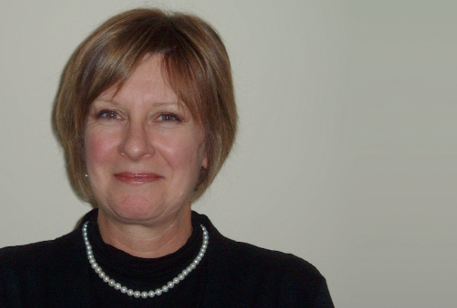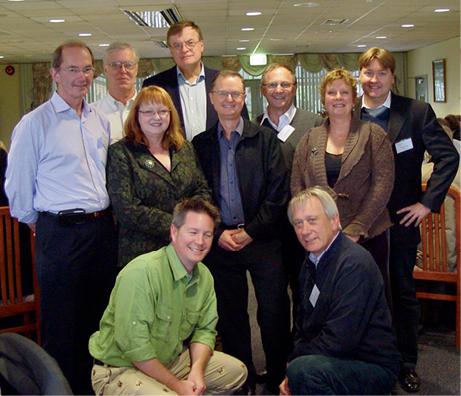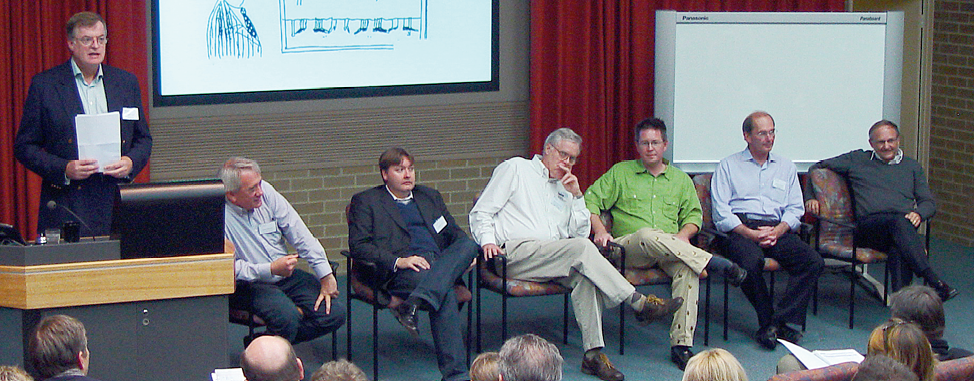
By Dianne Cooper, Australian Emergency Management Institute

This year saw the first in the Australian Emergency Management Institute (AEMI) Master Class series. As part of the AEMI Research and Workshop Agenda, the Master Class concept provides an avenue by which experienced professionals can learn from and interact with visiting experts in the various fields of emergency management (EM). It is designed as a short burst of intensive theory and practice, focussed on a specific aspect of Emergency Management (EM).
On 14-15 October, seventy-five attendees at the Mt Macedon Institute were addressed by five national and international experts in various aspects of Organisational Resilience. Over the day and a half, those who were fortunate enough to gain a position at the Master Class heard about the need for a new approach to resilience, case studies out of Asia reflecting business resilience, emerging trends in resilience, crisis management, the UK command structure Gold, Silver, Bronze and even God’s brain and uncertainty. The attendees had the opportunity to listen to, question and debate the various opinions put forward. The program was structured to enable time for interaction between the experts and the audience through question and answer time. As well there was a popular panel discussion facilitated by Peter Power, crisis management specialist and primary author of the UK Police command methodology Gold, Silver and Bronze.
The first day opened with an address by the National Security Capability Development Division First Assistant Secretary, Kym Duggan who stressed the importance of such forums for challenging shibboleths and fostering new and innovative practice. His call was answered in the first address by Peter Power, who explained the risks of believing resilience could be assured through frameworks such as Risk Management or Business Continuity Management. Peter stressed the importance of looking at resilience in a new way. He contended that dividing uncertainty up into various types of management approaches has served a purpose but that very approach now threatens to reinforce our vulnerability through entrenching the ‘silo’ mentality.

Back L to R: Professor John Handmer, Nat Forbes, Raelene Thomspon, Executive Director AEMI; Peter Power; Kym Duggan, Attorney General’s Department; Dr John Bircham, Dianne Cooper, AEMI; Professor Robert Kay.
Front: Professor Scot Phelps, and David Parsons.
As attendees pondered the notion of management strategies creating organisational risks, Dr John Bircham took the stage to provoke them even further. John specialises in analysis, formulation and reformulation of dynamic and complex management systems. He contended we must learn to embrace uncertainty; accept that it is our constant companion. Through his exposition on complex adaptive systems and their relation to uncertainty, he was able to convince many in the audience that the human brain abhors ambiguity and in its drive to survive will make decisions first and rationalise the reason later. He pointed out that all our organisational and management systems are based around conscious intent yet our decisions are based on unconscious drivers.
Examining another prism of organisational resilience, Director of International Association of Emergency Managers (IAEM) Asia-Singapore, Nat Forbes detailed three case studies. They told the story of internationally renowned companies which for economic reasons had located significant manufacturing plants in Asian countries. The folly of not recognising the key interdependencies that companies have with some of their suppliers became apparent. The suppliers may not have a way of guaranteeing provision of service or materials. Indeed sometimes they are geographically located in some of the most high risk natural disaster regions in the world – Asia’s ‘ring of fire’. He also noted that the next big dependency which companies have not factored in is water.
In a similar vein, Dr Robert Kay, Adjunct Professor at the University of Technology Sydney presented a dynamic argument on the importance of understanding your stakeholders and capitalising on uncertainty. Robert has assisted a number of large commercial organisations to embrace uncertainty and through innovation exploit the potential benefits. He argued in this Master Class address that if organisations are to weather the unknowable, they must seek to understand the complex, uncertain environment in which they function.

Left to right: Peter Power, David Parsons, Professor Robert Kay, Nat Forbes, Professor Scot Phelps, Professor John Handmer, Dr John Bircham.
United States Professor and experienced emergency manager Scot Phelps guided the audience through a tour of Enrico Quarantelli’s theories and their relevance today. The importance of the planning process as opposed to the plan, the all hazards approach, starting simple and building expertise, all contribute to crisis capability development. It is important to understand how people make decisions in a crisis. He pointed out that exercising for extreme events does not build competency. Rather it is the understanding of the core principles and the way people plan, train and work together that is the key. He noted that group dynamics is the whole point of emergency management training. Scot has come to these conclusions through years of field experience as well as research. He has worked in emergency management for two decades, been Assistant Commissioner for Emergency Management at the New York City Department of Health and Mental Hygiene as well as professor of EM at Metropolitan College, Western Washington University, NY Medical College and Southern Connecticut State University. Scot conducted a three hour workshop on the second day, focused on disaster decision making and incorporating the principles he had outlined on the first day.
The Organisational Resilience Master Class was a resounding success with attendees’ feedback clearly requesting a series be instigated. AEMI is a knowledge centre for innovative and leading emergency management practice. Master Classes provide an opportunity for leaders and experts in disaster resilience to share their knowledge and foster innovative and effective practice. AEMI will offer a Master Class series in 2011. The topics and speakers are currently being confirmed. This will see a number of speakers from the US, UK, Canada and Australia present at AEMI across a range of disaster resilience topics. Further information will be posted on the Emergency Management in Australia website www.ema.gov.au/aemi
Dianne Cooper has extensive experience in adult education and works in Professional Education strategy and research at the Australian Emergency Management Institute. Since joining AEMI in 2000 she has been involved in the development of learning and assessment materials and the delivery of programs in areas such as emergency risk management, emergency planning, business continuity management and organisational resilience. She has designed and conducted operational debriefs at the state, national and international level.